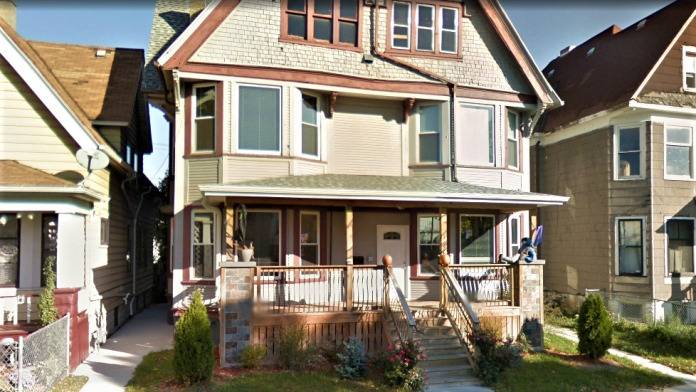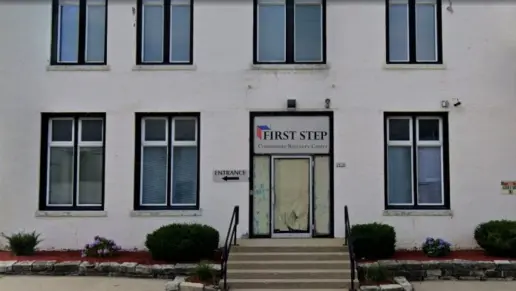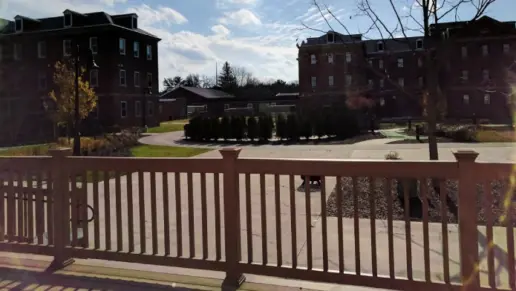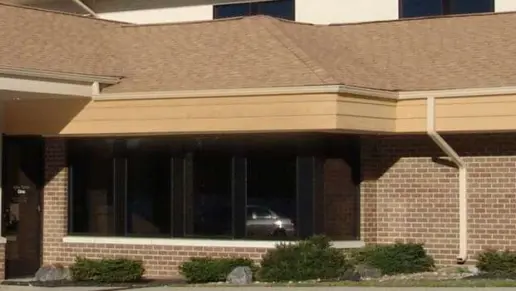The counselors are so comprehensive and patient. I would totally recommend this place to you. The environment is so gentle and loving!
About ARC Community Services
ARC Community Services is a 13-bed residential program for women under correctional supervision who have a substance use disorder. ARC Community Services is located in Milwaukee, Wisconsin.
Their treatment focus on the specialized needs of women, they form a holistic approach to women specific treatment that is culturally and gender sensitive. These additional elements include the family centered context of service delivery, the focus on domestic abuse, trauma and self-esteem, providing for comprehensive medical services, wraparound case management, and the extensive use of women as service providers and positive role models.
Utilization of strength-based case management in the primary life domains and AODA treatment plan development by the key participants, especially the woman herself, as well as other relevant systems such as probation and parole, human services or public health to establish goals over the length of a woman’s participation which are monitored on a regular basis and revised as needed under the primary responsibility and coordination of the AODA Counselor and designated Case Manager. The goals are individualized for each woman and her family, and are quantifiable as much as possible, with a time frame for accomplishment identified.
The project is licensed by the State of Wisconsin as an twelve bed, Community-Based Residential Facility (CBRF) for eight women who are remanded to the State Department of Corrections for intensive community supervision, and four women who are in the TAP/DTC and CWC/HB/IOAS programs who are in need of additional support and/or structure.
Program services include: AODA assessment; AODA groups (Intensive Treatment; Symptom Management, Stages of Change, Relapse Prevention and Weekend Plan); Individual AODA Counseling; Cognitive Interventions; Family and Relationships; Parenting; Child Visit Program; Trauma Education; Anger Management; Basic Living Skills; Case Management (includes housing, vocational, budgeting, health, independent living skills); Recreation; Community Referrals (including for physical or sexual assault and domestic violence); and Continuing Care Group.
The program uses a stage process under which residents earn increasing privileges as they satisfy program requirements and individualized treatment plan goals. The program in located in a renovated three-story duplex in the Walker’s Square neighborhood. AMWP is licensed as a community-based residential facility and certified as a medically-monitored AODA residential facility.
Latest Reviews
Rehab Score
Gallery

Location
Other Forms of Payment
Medicaid is a state based program that helps lower-income individuals and families pay for healthcare. Medicaid covers addiction treatment so those enrolled can use their coverage to pay for rehab. When a program accepts Medicaid the client often pays very little or nothing out of their own pocket.
Private insurance refers to any kind of healthcare coverage that isn't from the state or federal government. This includes individual and family plans offered by an employer or purchased from the Insurance Marketplace. Every plan will have different requirements and out of pocket costs so be sure to get the full details before you start treatment.
Self-pay involves paying for treatment out of your own pocket. You can use savings or credit, get a personal loan, or receive help from family and friends to fund your treatment. If you don't have insurance or your insurance plan doesn't cover a specific program, self-pay can help ensure you still get the care you need.
Financial aid can take many forms. Centers may have grants or scholarships available to clients who meet eligibility requirements. Programs that receive SAMHSA grants may have financial aid available for those who need treatment as well. Grants and scholarships can help you pai for treatment without having to repay.
Addiction Treatments
Levels of Care
Treatments
The goal of treatment for alcoholism is abstinence. Those with poor social support, poor motivation, or psychiatric disorders tend to relapse within a few years of treatment. For these people, success is measured by longer periods of abstinence, reduced use of alcohol, better health, and improved social functioning. Recovery and Maintenance are usually based on 12 step programs and AA meetings.
The goal of drug rehab in Wisconsin is to address drug addiction as a complex issue that involves physical, mental, and relational aspects. During rehab, treatment focuses on each of these areas and gives you the tools you need to achieve and maintain sobriety.
Many of those suffering from addiction also suffer from mental or emotional illnesses like schizophrenia, bipolar disorder, depression, or anxiety disorders. Rehab and other substance abuse facilities treating those with a dual diagnosis or co-occurring disorder administer psychiatric treatment to address the person's mental health issue in addition to drug and alcohol rehabilitation.
Opioid rehabs specialize in supporting those recovering from opioid addiction. They treat those suffering from addiction to illegal opioids like heroin, as well as prescription drugs like oxycodone. These centers typically combine both physical as well as mental and emotional support to help stop addiction. Physical support often includes medical detox and subsequent medical support (including medication), and mental support includes in-depth therapy to address the underlying causes of addiction.
Substance rehabs focus on helping individuals recover from substance abuse, including alcohol and drug addiction (both illegal and prescription drugs). They often include the opportunity to engage in both individual as well as group therapy.
Programs


Clinical Services
Cognitive Behavioral Therapy (CBT) is a therapy modality that focuses on the relationship between one's thoughts, feelings, and behaviors. It is used to establish and allow for healthy responses to thoughts and feelings (instead of unhealthy responses, like using drugs or alcohol). CBT has been proven effective for recovering addicts of all kinds, and is used to strengthen a patient's own self-awareness and ability to self-regulate. CBT allows individuals to monitor their own emotional state, become more adept at communicating with others, and manage stress without needing to engage in substance abuse.
Whether a marriage or other committed relationship, an intimate partnership is one of the most important aspects of a person's life. Drug and alcohol addiction affects both members of a couple in deep and meaningful ways, as does rehab and recovery. Couples therapy and other couples-focused treatment programs are significant parts of exploring triggers of addiction, as well as learning how to build healthy patterns to support ongoing sobriety.
Dialectical Behavior Therapy (DBT) is a modified form of Cognitive Behavioral Therapy (CBT), a treatment designed to help people understand and ultimately affect the relationship between their thoughts, feelings, and behaviors. DBT is often used for individuals who struggle with self-harm behaviors, such as self-mutilation (cutting) and suicidal thoughts, urges, or attempts. It has been proven clinically effective for those who struggle with out-of-control emotions and mental health illnesses like Borderline Personality Disorder.
Experiential therapy is a form of therapy in which clients are encouraged to surface and work through subconscious issues by engaging in real-time experiences. Experiential therapy departs from traditional talk therapy by involving the body, and having clients engage in activities, movements, and physical and emotional expression. This can involve role-play or using props (which can include other people). Experiential therapy can help people process trauma, memories, and emotion quickly, deeply, and in a lasting fashion, leading to substantial and impactful healing.
Based on CSAT Best Practices AODA treatment is provided within the family context, especially the mother/child bond and other self-defined significant relationships and emphasizes the development of natural support networks of neighbors, church, and family as defined by the women. This focus was strengthened with the results of the initial CHPPE Evaluation which showed that the chief predictor of sobriety and long-term recovery for women was resolution of the mother’s relationship with her children and the fostering of healthy family functioning and family intactness.
Group therapy is any therapeutic work that happens in a group (not one-on-one). There are a number of different group therapy modalities, including support groups, experiential therapy, psycho-education, and more. Group therapy involves treatment as well as processing interaction between group members.
In individual therapy, a patient meets one-on-one with a trained psychologist or counselor. Therapy is a pivotal part of effective substance abuse treatment, as it often covers root causes of addiction, including challenges faced by the patient in their social, family, and work/school life.
Life skills trainings involve all the skills a person must have in order to function successfully in the world. These include time management, career guidance, money management, and effective communication. Truly successful addiction recovery is based on the ability to not only live substance-free, but to thrive. Life skills teaches the practical necessities of functioning in society, which sets clients up for success in life, and therefore sobriety.
Trauma therapy addresses traumatic incidents from a client's past that are likely affecting their present-day experience. Trauma is often one of the primary triggers and potential causes of addiction, and can stem from child sexual abuse, domestic violence, having a parent with a mental illness, losing one or both parents at a young age, teenage or adult sexual assault, or any number of other factors. The purpose of trauma therapy is to allow a patient to process trauma and move through and past it, with the help of trained and compassionate mental health professionals.
Contact Information
1022 West Madison Street
Milwaukee, WI 53204


